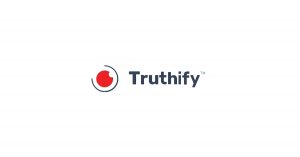 Have you ever heard someone say, “A penny for your thoughts”? I hear the expression regularly, but no one has ever actually given me a penny for my thoughts – or my data, for that matter. We live in a world where data is king; and yet, we have very little control over how our personal data is used for the financial gain of those that collect it. In light of data breaches, privacy concerns, and recent General Data Protection Regulations (GDPR) in Europe, perhaps it’s time we take the ownership and monetization back into our own hands.
Have you ever heard someone say, “A penny for your thoughts”? I hear the expression regularly, but no one has ever actually given me a penny for my thoughts – or my data, for that matter. We live in a world where data is king; and yet, we have very little control over how our personal data is used for the financial gain of those that collect it. In light of data breaches, privacy concerns, and recent General Data Protection Regulations (GDPR) in Europe, perhaps it’s time we take the ownership and monetization back into our own hands.
The value of your data, or more specifically, you as a lead, can vary widely depending on the industry or product. Mortgage companies pay $47 per click on pay-per-click web advertising, while insurance companies may pay as much as $54 per click. And across industries, the cost of client acquisition continues to increase. The bottom line: our data is REALLY valuable to those that can use it for financial gain.
This got me thinking. What if the tables were turned, and companies paid us directly for our data? This would make companies more efficient, and reduce the amount of money spent on marketing and advertising. But more importantly, perhaps it’d democratize the data economy to benefit consumers.
Also Read: The Relevancy Gap: Businesses Believe Marketing Communications Are Effective; Consumers Disagree
Opting into a new data economy
Most of the consumer data collected today can be divided into three categories: digital behavior (such as which websites you visit), spending behavior (such as credit card and bank transactions), and physical behavior data (such as where/how fast you drive, how often you work out, and other data from connected devices). All of this data can be used to identify and target potential leads, and brands, advertise, and marketers are willing to pay for it.
And it’s not just retailers and advertisers benefiting from our data today. Companies like Cambridge Analytica have notoriously reaped the rewards of selling our data to interested third parties, and while they were “caught” doing so, they’re far from the only ones. Companies turned the collection, sales, and analysis of big data into a booming industry, expected to top $210 billion in revenue by 2020.
What if interested third parties – the brands, advertisers and marketers I mentioned above – could bypass data brokers and come right to the source: you? After all, the real objective of harvesting our data is to try and predict what we are going to do next or put us into a sales funnel. Historical data based on past shopping behavior is ok, but companies really need to identify how we are feeling BEFORE we act. This is the Holy Grail for retailers and marketers, and with the prominence of mobile technology and the emergence of emotion artificial intelligence (AI), true predictive analytics will soon become a reality.
Picture this. A soda brand is testing a new advertisement, and they want to know how you personally feel about it – will it elicit the desired response? Convince you to go out and buy a bottle? What if they could put the ad directly in front of you, and others in their target demographic, and you could get paid by the brand for simply giving your true, unbiased opinion?
The brand could send out a potential new ad directly to consumers, you could view it on a mobile device, and your smartphone would simultaneously record your emotional reaction using artificial intelligence. Did you exhibit happiness, disgust, anger, or contempt? Did you show sadness? Fear? Surprise? Since 90% of decisions are based on emotion versus fact, the insights gained by learning how you personally felt would be far more valuable than your browser history. You, in turn, would be compensated directly for sharing your reactions (vis-a-vis your data) – a potential win-win.
Turning the tables
This idea could disrupt not just data brokering, but advertising, marketing, sales, and product development as we know it. What’s more, in the gig economy, it presents an entirely new way for consumers to make money off of data that’s being freely collected from them today.
It’s not just about compensation, though. The fundamental change that needs to be made is that the consumer should be in control of their data. The consumer should decide who is permitted to collect data, as well as when and what data can be collected, with complete transparency from those who will use it.
The tables are turning in the data economy, and this shift is going to occur far sooner than you think. And when it does, I’m willing to bet you’ll get a lot of pennies for your thoughts.
Also Read: Customer Experience in the Age of GDPR: Privacy vs. Personalization












Comments are closed.